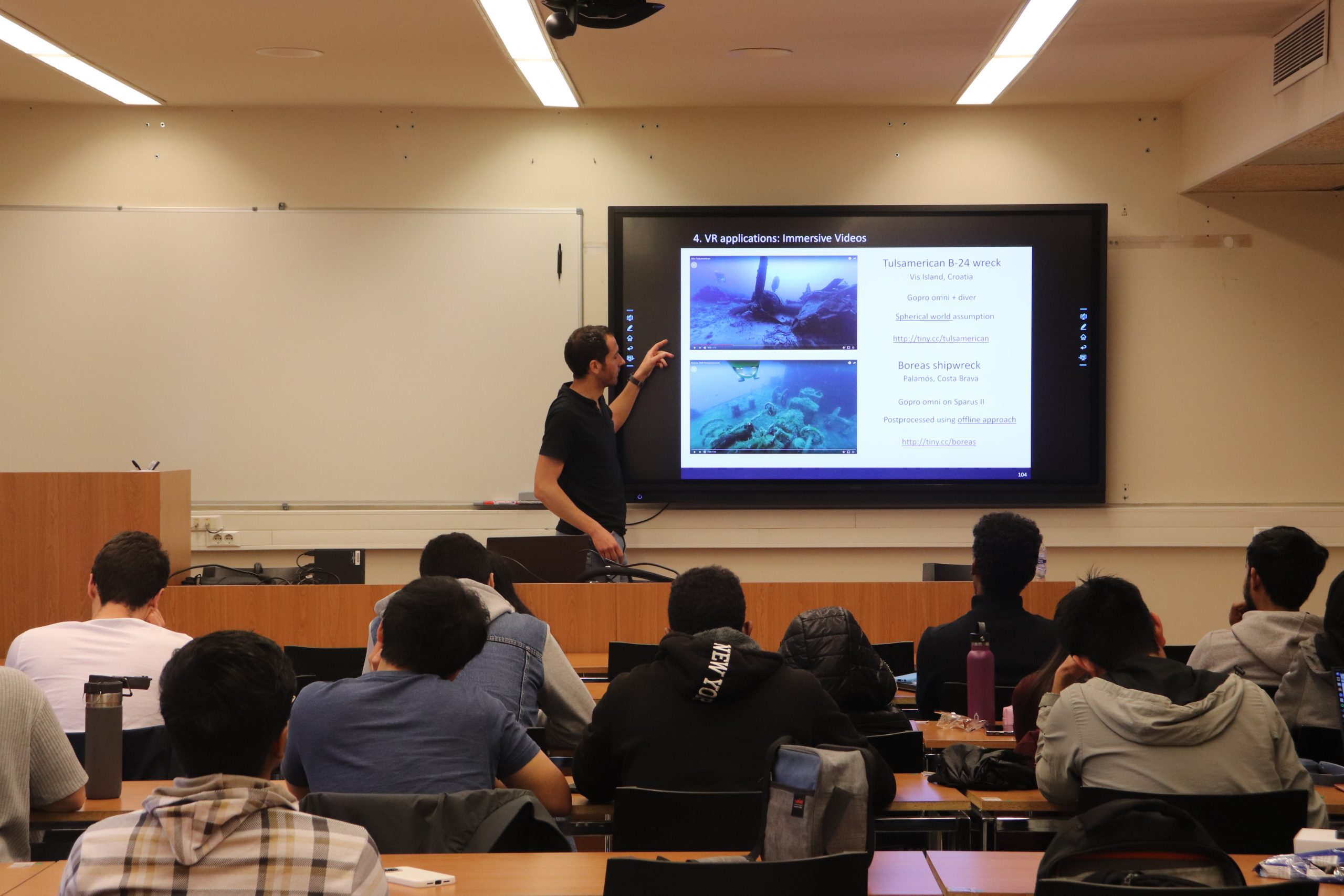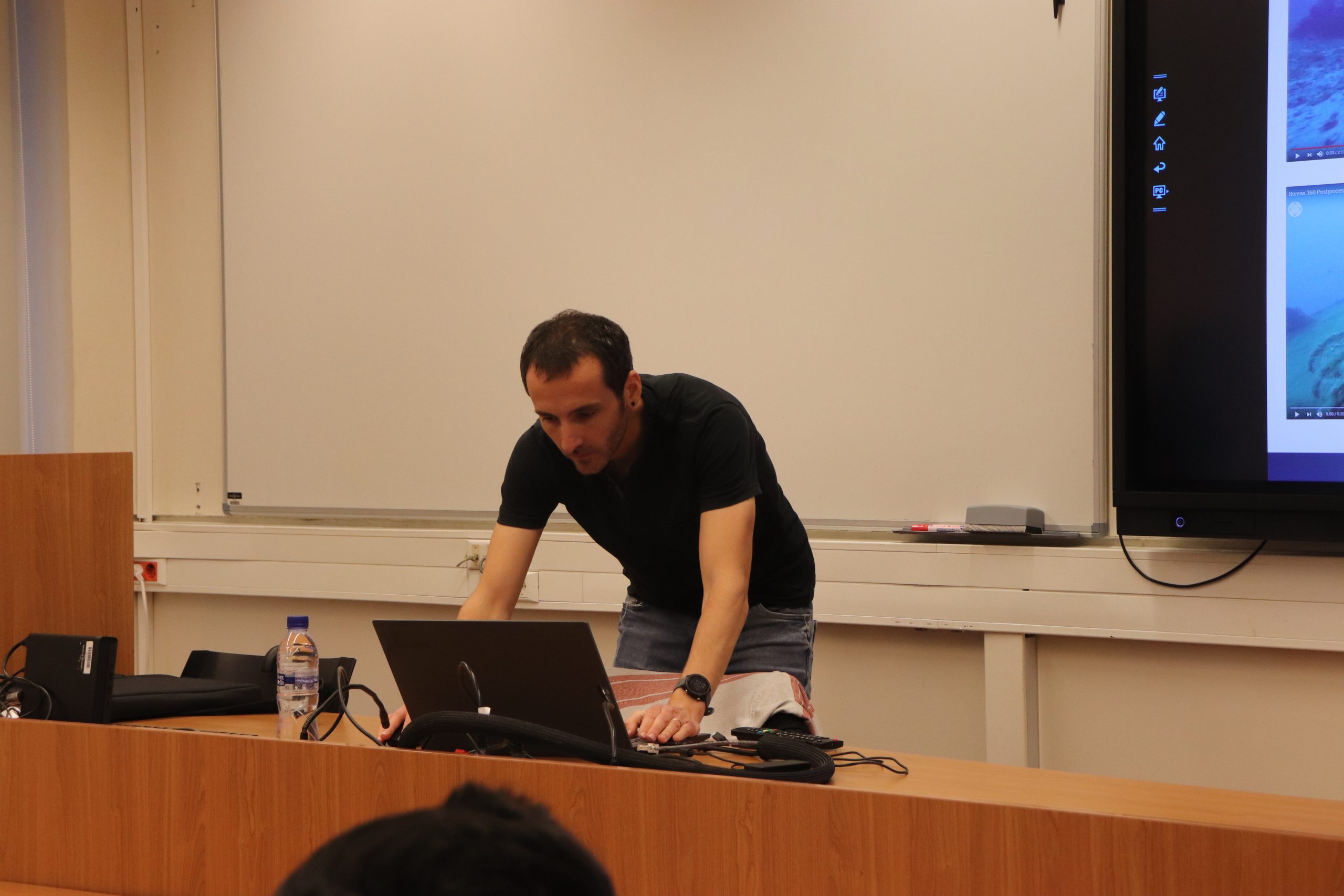On April 29th, students from the Erasmus Mundus Intelligent Field Robotic systems (IFRoS) and Intelligent Robotic Systems (MIRS) masters had the pleasure of hosting Josep Bosch, a robotics engineer specialized in underwater mapping from Iqua Robotics.
Dr. Bosch presented his PhD research titlet “Underwater Navigation and Mapping with an Omnidirectional Optical Sensor” conducted at the Underwater Research Center of the University of Girona. During his thesis, he developed a comprehensive reference for designing, calibrating, and using omnidirectional cameras in the underwater mèdium. Notably, he was one of the first researchers to explore the potential of multi-camera systems in this challenging environment.
During the seminar, he delved into the advantages of using omnidirectional cameras for underwater Applications. He compared different camera configurations, highlighting their strengths and limitations. He further discussed various fields where this technology can be instrumental. The seminar offered a technical deep-dive into Mr. Bosch’s PhD research. He explained the design and calibration processes for two distinct multi-camera systems, along with the algorithms developed to generate seamless omnidirectional images and video streams. Additionally, he showcased practical use cases for the gathered data, including real-world applications of the system as a navigation sensor on an Autonomous Underwater Vehicle (AUV).


Josep also provided insights into his current work at Iqua Robotics, a company founded as a spin-off from the University of Girona. Iqua Robotics specializes in developing and selling AUVs systems which can be adapted for a wide range of research and professional applications. Josep continues to innovate in optical mapping solutions. He also plays a leading role in developing the first and only mapping software specifically designed for underwater acoustic cameras (forward-looking sonars) that doesn’t require external positioning systems.

